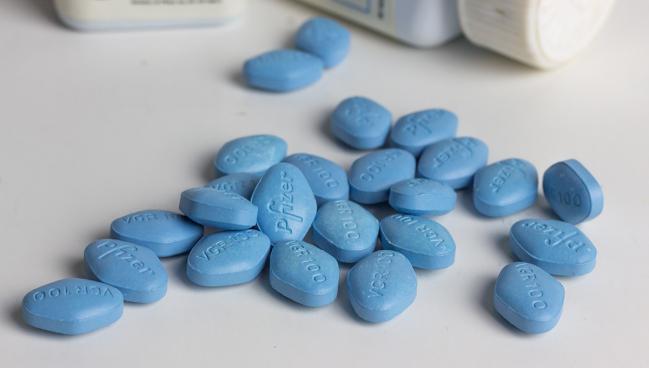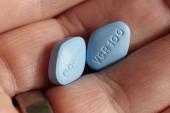Erectile Dysfunction Drugs Show Cardioprotective Effects in Low-risk Men
A prospective, randomized trial is needed to confirm causality, but the findings are reassuring, says Robert Kloner.

Men taking phosphodiesterase type 5 (PDE5) inhibitors for erectile dysfunction (ED) have lower risks of overall MACE, cardiovascular mortality, and all-cause mortality than those not on these medications, according to a new retrospective analysis.
Prior Swiss data demonstrated similar findings last year in men with stable CAD, but the main strength of the current study is that captures a mostly low-risk population.
“This study does support the overall safety in terms of cardiovascular events of these drugs and raises the possibility that these drugs may have some cardioprotective effects,” lead author Robert A. Kloner, MD, PhD (Huntington Medical Research Institutes, Pasadena and Keck School of Medicine of the University of Southern California, Los Angeles, CA), told TCTMD.
In addition, the dose response the researchers found between the number of PDE5 inhibitor pills participants were taking and cardiovascular protection “raises the issue whether there's some other benefits that really need to be looked at here,” he said. “Were there decreases in cancer and other causes of death? We didn't really go into much detail on that, but there are some other possibilities besides just reductions in cardiovascular benefits.”
The findings were published online last month in the Journal of Sexual Medicine.
Cardioprotective Effects
For the study, Kloner and colleagues included retrospective claims data from the HealthCore Integrated Research Database of men who, without prior MACE, had at least one diagnosis of ED within 1 year between 2006 and 2020. Mean age was 52 years.
They matched patients with versus without PDE5 inhibitor use in a 1:4 ratio according to baseline risk, also performing multivariate analysis. Over a mean follow-up period of between 29 and 37 months, the primary outcome of MACE (defined as cardiovascular death or hospitalization for MI, coronary revascularization, stroke, heart failure, or unstable angina) was significantly lower for the 23,816 men who had been exposed to PDE5 inhibitors over the course of the study compared with the 48,682 who had not (HR 0.87; 95% CI 0.79-0.95).
Individual outcomes of coronary revascularization (HR 0.85; 95% CI 0.73-0.98), heart failure (HR 0.83; 95% CI 0.72-0.97), unstable angina (HR 0.78; 95% CI 0.64-0.96), and CV death (HR 0.61; 95% CI 0.41-0.90) also were lower with PDE5 inhibitor exposure. Also, men who had taken PDE5 inhibitors were at a lower risk for overall mortality (HR 0.75; 95% CI 0.65-0.87).
Results were similar for men without CAD but who had CV risk factors at baseline and also for those with type 2 diabetes.
In an analysis stratifying men into quartiles of PDE5 inhibitor exposure, those in the highest quartile had the lowest risk of both MACE (HR 0.45; 95% CI 0.37-0.54) and overall mortality (HR 0.51; 95% CI 0.37-0.71) compared with those in the lowest quartile of exposure.
There’s also the potential that sexual activity itself, and not the drug per se, is behind the cardiovascular benefits, Kloner said, adding that this will be tough to study. “If you do a prospective study and you randomize men to placebo versus PDE5 inhibitors, they may figure out whether they're on a PDE5 inhibitor. It's pretty easy to figure that out. And if they do then it's very likely they're going to have increased sexual activity versus the men with ED not on PDE5 inhibitors.”
There’s also the potential that physicians are more likely to give PDE5 inhibitors to healthier people, he added.
Another direction for future research in this space would be to see if PDE5 inhibitors have the same effect on women as on men.
“We know that these drugs are being used, of course, for pulmonary hypertension in both men and in women, and there are also some physicians who prescribe these drugs for Raynaud’s phenomenon,” Kloner said. “Will they have a cardioprotective effect and reduce MACE in women? I don't know the answer to that, but I think that would be a really interesting thing to go after.”
Yael L. Maxwell is Senior Medical Journalist for TCTMD and Section Editor of TCTMD's Fellows Forum. She served as the inaugural…
Read Full BioSources
Kloner RA, Stanek E, Crowe CL, et al. Effect of phosphodiesterase type 5 inhibitors on major adverse cardiovascular events and overall mortality in a large nationwide cohort of men with erectile dysfunction and cardiovascular risk factors: a retrospective, observational study based on healthcare claims and national death index data. J Sex Med. 2023;Epub ahead of print.
Disclosures
- This study was supported by a grant from Sanofi to HMRI. Sanofi was not involved with data collection or data analysis or in drafting of the manuscript.
- Kloner reports being a paid consultant to Sanofi but did not receive consulting fees for this project.





Comments